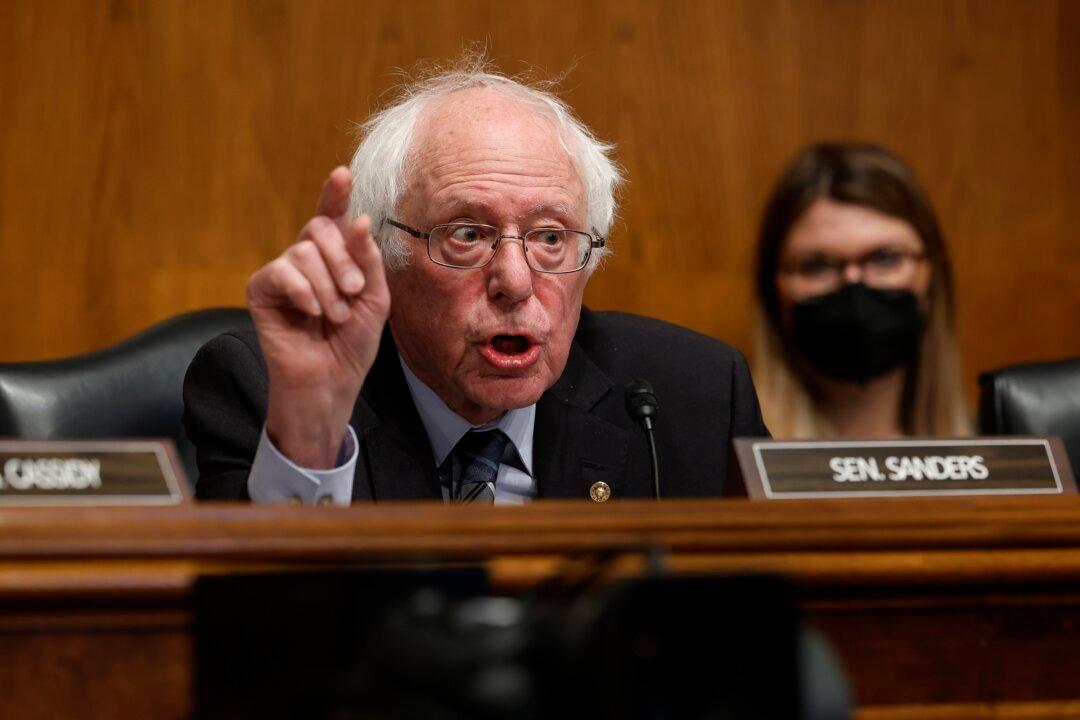Sen. Bernie Sanders (I-Vt.) said lawmakers could start negotiating on the U.S. debt and spending soon, but not before Republicans commit to increasing the U.S. debt limit to avoid a default on its existing debt obligations.
Sanders discussed the U.S. national debt and an ongoing debate over raising the debt limit during an interview with CNN on Sunday. The Republican-controlled House of Representatives passed a bill that offers to raise the debt by about $1.5 trillion while instituting provisions that are intended to reduce federal spending by about $4.5 trillion over the next decade.





